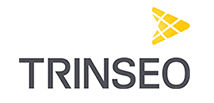Using our “Ticky Tacky” Ways of Thinking as a Trigger Towards Diversity
 Inclusive leadership is a fundamental capability for 21st century leadership.
Inclusive leadership is a fundamental capability for 21st century leadership.
-Jacqui Grey and Christine Cox
Little boxes on the hillside. Little boxes made of ticky tacky. And they all look just the same.
-Malvina Reynolds in 1962
The above quote is an outtake of song written by Malvina Reynolds in 1962 which at the time was a satire addressing Originally written in 1962, The song is a political satire about the development of suburbia, and associated conformist middle-class attitudes.
The ability of our organizations to continue growing and succeeding in the VUCA world will lie in their ability to learn from their different and conflicting points of view.
While our brains are dependent upon social connection to grow and develop (quote Hillary Scarlett), it is also an organism that works to save us energy. Because of that, it can rush to quick judgement in order to move onto the next task.
This leads to cognitive bias – making meaning out of things that have been part of our experience and are known to us. It allows us to make quick and efficient decisions –freeing up our brain to devote to other activities and more important decisions.
Rooted in the way we are wired.
But therein lies the problem. We have more than 100 seeds of bias (Matt Liberman and colleagues). We view and see people who are similar to ourselves to orient ourselves.
A shift has occurred. And it won’t go away anytime soon. It’s being referred to as “The Great Resignation” and it marks the mass exodus of workers from their current positions to pursue new opportunities. According to FRED Economic Data[i], there have been at least 2.8 million resignations nationwide in each of the last six months. It’s hurting companies, and it’s going to take new strategies and forward-thinking to reduce the number of resigning employees in 2022.
This event is being described as an uprising from employees who will no longer tolerate toxic bosses, unfair wages, unrealistic workload expectations, and not feeling valued. None of these desires are new…..employees have always had these desires. But its more visible now because of the great impact the volume of resignations are having on organizations. Many are leaving jobs without their next position being lined up. That’s serious.
That means an increased number of people are seeking jobs. But not just any position. Job seekers are looking for work situations that facilitate flexibility and balance, provide personal growth opportunities, skill development and put their employee’s psychological safety and mental well-being as first priorities.
As a result, organizations are considering how they need to run their businesses. Nothing will change overnight, but small steps lead to big changes. Retaining employees is now more critical than ever.
Here are three sure fire actions to take to help stop the bleeding of talent from your organization.
Embrace the New Ways of Work
Stop thinking things will go back to the way they were pre-COVID. It never will. If you continue to expect how we work to look like before, you will find yourself frustrated and lacking motivation. Yes, it will be challenging for a while. But take this as an opportunity to help create something new for your team and your organization. Develop your growth mindset. Be the role model within your organization and find ways to create new processes. In the end, you’ll be far ahead of other organizations who are still trying to force fit the old ways of work into the new paradigm.
Foster Autonomy and Flexibility
If we’ve learned anything from our COVID days, is that employees relish the autonomy they have experienced from working at home. It’s allowed them to create their own ways of “getting the job done” figuring out how to manage their families and take care of their own physical exercise needs. Ask your employees for ideas on how to continue to weave autonomy into their jobs. And then trust them to get the job done. This builds their trust in you.
Become Employee Centric
Launch your own “How are You Doing” campaign and be intentional about connecting with each employee 1:1 on a regular basis. People are craving empathy and compassion and they want to know that you truly care. And it needs authenticity. If they sense you are just checking the “connection” box, you will do more damage than good. Ask them “How have you been winning at work? At home? What can I do to better support you? What do you need help with? Great steward leadership is about giving away of oneself and focusing on others.
No company is immune to employee turnover, but there are things that will reduce it. And it starts with the wisdom of great leaders.
We want to help you make sure your organization is set up for success and build your leadership capabilities to reach their goals. Contact us today to get started.
About Transformation Strategies
Founded by Tricia Steege in 2001, Transformation Strategies is a trusted coaching and consulting firm that assists its clients to realize their desired futures by partnering with them to create comprehensive change strategies and develop their leaders to accomplish real results. We specialize in shifting whole systems at one time by helping our clients think the way the whole system thinks.






